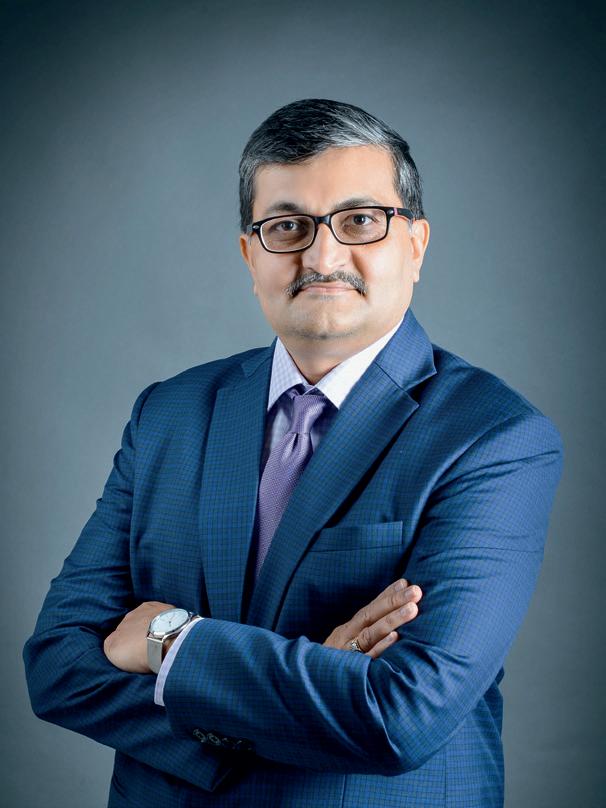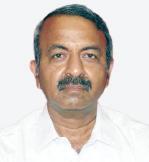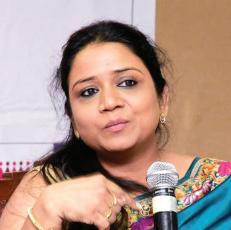

SEBI Plans to Switch
From Global to Local Prices
For Exchange Traded Funds (ETFs)
For Exchange Traded Funds (ETFs) SEBI Plans to Switch
From Global to Local Prices







For many Indian investors, Exchange Traded Funds (ETFs) have become a popular way to invest in gold and silver without worrying about storage or safety. Like regular stocks, these funds trade on exchanges and reflect the market value of their underlying assets. Recently, on July 16, 2025, SEBI released a consultation paper proposing changes to the calculation method for the value of physical gold and silver held by ETFs. The aim is to bring consistency across the mutual fund industry and align valuations more closely with domestic market conditions. Public comments may be submitted by August 6, 2025.
Currently, the valuation of physical gold and silver is based on prices published by the London Bullion Market Association (LBMA) in US dollars per troy ounce. These prices are then converted into Indian Rupees using standard conversion rates and the RBI’s reference exchange rate. After that, customs duty and applicable taxes are added to arrive at the final value.
On the other hand, when mutual funds invest in gold and silver through domestic commodity exchanges, their valuation is based on the closing price of domestic futures contracts.
This difference in valuation methods, international pricing for physical holdings versus domestic futures prices, creates inconsistency across the industry. To bring uniformity and avoid confusion, SEBI has proposed a review of the valuation methodology used for physical gold and silver held by ETFs.
Exchange-Traded Funds (ETFs) are investment funds that track indices, such as the Sensex and Nifty. Unlike traditional mutual funds, ETFs trade like a common stock on stock exchanges and their prices fluctuate throughout the trading day. The trading value of an ETF depends on the net asset value (NAV) of the underlying assets. ETFs, generally offer higher daily liquidity and lower fees as compared to regular mutual fund schemes.
For example, imagine “ABC Gold ETF”, an exchange-traded fund listed on the Indian stock exchanges. If you buy units of ABC Gold ETF, your investment’s value will rise or fall with the daily price of gold in India. Instead of owning physical gold bars or coins, you hold units in the ETF that directly reflect the current market value of gold held by the fund. This provides investors with an easy and cost-effective way to gain exposure to gold prices, without worrying about storage or security.
SEBI has proposed the following key proposals –
Currently, ETFs value their gold and silver holdings using the LBMA price, which reflects international rates set in London. To make it usable in India, that price is converted into INR using the RBI reference rate, and then adjusted for customs duties and other taxes. This process is not only layered but also leaves room for inconsistency due to manual adjustments for premiums or discounts.
SEBI noted that domestic commodity exchanges follow its transparency requirements and compliance standards set by SEBI. Therefore, using spot prices published by these Indian exchanges would better reflect actual prices in the Indian market and help bring consistency across mutual funds.
To resolve the disconnect between current international-based valuation and domestic realities, SEBI has proposed that AMCs should shift from using LBMA prices to relying directly on spot prices published by domestic commodity exchanges for valuing gold and silver.
Suppose, the LBMA gold price is USD 2,400 per ounce and the exchange rate is Rs 83/USD. This converts to Rs 1,99,200 (2400*83). After adding taxes and duties of Rs 700, the total price becomes Rs 1,99,900.
However, if the domestic spot price published by an Indian exchange is Rs 1,98,500, then the ETF’s NAV based on the LBMA price is Rs 1,400 higher than the actual Indian market price.
This difference creates inconsistency and can mislead investors. Shifting to domestic prices eliminates this gap, making ETF valuations more accurate and reflective of the Indian market conditions.
Switching to domestic spot prices for valuing gold and silver ETFs would streamline valuations by removing currency conversion and tax adjustments. Investors would get a clearer and more consistent view of their holdings, especially useful when global and local prices don’t match up.
In India, domestic spot prices for gold and silver are arrived at through a polling process that involves a panel of participants from across the physical market. These include importers, exporters, traders, and commission agents, who submit their price quotes at fixed intervals during the day. Based on these submissions, commodity exchanges calculate and publish the official spot price.
To ensure accuracy and fairness, exchanges use established methods, such as the Trimmed Mean Methodology. In this approach, extreme prices that fall outside set limits are removed, and the average is then calculated using the remaining values. This helps in determining a price that accurately reflects market sentiment.
Once all participants have submitted their quotes, the system processes the data and computes the final spot price for the day. This price is then published on the exchange’s website for public access.
After polling, prices quoted by polling participants are entered in the system. The system then computes the spot price for the day. On completion of the polling process, the final spot price is disseminated through the exchange’s websites.
As the polled price for the spot market of commodities needs to be adequately transparent to provide the valuation of gold and silver, SEBI has now proposed that the detailed polling mechanism used by domestic regulated entities for determining spot prices, including the methodology of polling and the policies for the fair conduct of polling, etc., must be made publicly available.
Further, stock exchanges must have a well-documented policy for the spot price polling mechanism. They must display the spot price polling mechanism adopted for every contract and disclose details of individual spot price polling participants on their websites.
Additionally, the process must comply with the requirements outlined in SEBI’s Master Circular for the commodity derivatives segment. This includes conducting monthly reviews to identify participants who consistently submit unrealistic quotes, and providing a separate channel to receive feedback and complaints about the polling process.
An Indian commodity exchange collects gold price quotes from trusted market participants like traders and jewellers. If an exchange receives gold price quotes ranging from Rs 5,799 to Rs 6,000 per gram, it removes the extreme values and calculates the average of the remaining quotes. Suppose the trimmed mean is Rs 5,835. This becomes the official price published for the day. SEBI now requires the entire process, from data collection to final pricing, to be transparent and publicly accessible.
Introducing transparency in the spot price polling mechanism will enhance the credibility of ETF valuations. By making the polling process public and verifiable, SEBI aims to ensure that spot prices accurately reflect Indian market conditions, thereby building investor trust.
SEBI’s proposal to shift the valuation of gold and silver ETFs to domestic spot prices is a positive step towards making the process more accurate and transparent. Using domestic spot prices and standardising the valuation process will help bring consistency across all mutual fund schemes. This move will also better reflect ETF valuations in line with actual market conditions in India, thereby improving investor confidence.


Founded 1972


Evolution From a small family business to a leading technology-oriented Publishing/Product company


Expansion

Launch of Taxmann Advisory for personalized consulting solutions

Aim
Achieve perfection, skill, and accuracy in all endeavour

Growth
Evolution into a company with strong independent divisions: Research & Editorial, Production, Sales & Marketing, and Technology

Future
Continuously providing practical solutions through Taxmann Advisory
Editorial and Research Division
Over 200 motivated legal professionals (Lawyers, Chartered Accountants, Company Secretaries)
Monitoring and processing developments in judicial, administrative, and legislative fields with unparalleled skill and accuracy
Helping businesses navigate complex tax and regulatory requirements with ease

Over 60 years of domain knowledge and trust
Technology-driven solutions for modern challenges
Ensuring perfection, skill, and accuracy in every solution provided
Income Tax
Corporate Tax Advisory
Trusts & NGO Consultancy
TDS Advisory
Global Mobility Services
Personal Taxation
Training
Due Diligence
Due Dilligence
Advisory Services
Assistance in compounding of offences
Transactions Services
Investment outside India
Goods
Transaction Advisory
Business Restructuring
Classification
Due Diligence
Training
Advisory
Trade Facilitation Measures
Corporate
Corporate Structuring
VAT Advisory
Residential Status

Naveen Wadhwa
Research and Advisory [Corporate and Personal Tax]
Chartered Accountant (All India 24th Rank)
14+ years of experience in Income tax and International Tax
Expertise across real estate, technology, publication, education, hospitality, and manufacturing sectors
Contributor to renowned media outlets on tax issues

Vinod K. Singhania Expert on Panel | Research and Advisory (Direct Tax)
Over 35 years of experience in tax laws
PhD in Corporate Economics and Legislation
Author and resource person in 800+ seminars

V.S. Datey Expert on Panel | Research and Advisory [Indirect Tax]
Holds 30+ years of experience
Engaged in consulting and training professionals on Indirect Taxation
A regular speaker at various industry forums, associations and industry workshops
Author of various books on Indirect Taxation used by professionals and Department officials

Manoj Fogla Expert on Panel | Research and Advisory [Charitable Trusts and NGOs]
Over three decades of practising experience on tax, legal and regulatory aspects of NPOs and Charitable Institutions
Law practitioner, a fellow member of the Institute of Chartered Accountants of India and also holds a Master's degree in Philosophy
PhD from Utkal University, Doctoral Research on Social Accountability Standards for NPOs
Author of several best-selling books for professionals, including the recent one titled 'Trust and NGO's Ready Reckoner' by Taxmann
Drafted publications for The Institute of Chartered Accountants of India, New Delhi, such as FAQs on GST for NPOs & FAQs on FCRA for NPOs.
Has been a faculty and resource person at various national and international forums

the UAE
Chartered Accountant (All India 36th Rank)
Has previously worked with the KPMG

S.S. Gupta Expert on Panel | Research and Advisory [Indirect Tax]
Chartered Accountant and Cost & Works Accountant
34+ Years of Experience in Indirect Taxation
Bestowed with numerous prestigious scholarships and prizes
Author of the book GST – How to Meet Your Obligations', which is widely referred to by Trade and Industry

Sudha G. Bhushan Expert on Panel | Research and Advisory [FEMA]
20+ Years of experience
Advisor to many Banks and MNCs
Experience in FDI and FEMA Advisory
Authored more than seven best-selling books
Provides training on FEMA to professionals
Experience in many sectors, including banking, fertilisers, and chemical
Has previously worked with Deloitte
Taxmann Delhi
59/32, New Rohtak Road
New Delhi – 110005 | India
Phone | 011 45562222
Email | sales@taxmann.com
Taxmann Mumbai
35, Bodke Building, Ground Floor, M.G. Road, Mulund (West), Opp. Mulund Railway Station Mumbai – 400080 | Maharashtra | India
Phone | +91 93222 47686
Email | sales.mumbai@taxmann.com
Taxmann Pune
Office No. 14, First Floor, Prestige Point, 283 Shukrwar Peth, Bajirao Road, Opp. Chinchechi Talim, Pune – 411002 | Maharashtra | India
Phone | +91 98224 11811
Email | sales.pune@taxmann.com
Taxmann Ahmedabad
7, Abhinav Arcade, Ground Floor, Pritam Nagar Paldi
Ahmedabad – 380007 | Gujarat | India
Phone: +91 99099 84900
Email: sales.ahmedabad@taxmann.com
Taxmann Hyderabad
4-1-369 Indralok Commercial Complex Shop No. 15/1 – Ground Floor, Reddy Hostel Lane Abids Hyderabad – 500001 | Telangana | India
Phone | +91 93910 41461
Email | sales.hyderabad@taxmann.com
Taxmann Chennai No. 26, 2, Rajan St, Rama Kamath Puram, T. Nagar
Chennai – 600017 | Tamil Nadu | India
Phone | +91 89390 09948
Email | sales.chennai@taxmann.com
Taxmann Bengaluru
12/1, Nirmal Nivas, Ground Floor, 4th Cross, Gandhi Nagar
Bengaluru – 560009 | Karnataka | India
Phone | +91 99869 50066
Email | sales.bengaluru@taxmann.com
Taxmann Kolkata Nigam Centre, 155-Lenin Sarani, Wellington, 2nd Floor, Room No. 213
Kolkata – 700013 | West Bengal | India
Phone | +91 98300 71313
Email | sales.kolkata@taxmann.com
Taxmann Lucknow
House No. LIG – 4/40, Sector – H, Jankipuram Lucknow – 226021 | Uttar Pradesh | India
Phone | +91 97924 23987
Email | sales.lucknow@taxmann.com
Taxmann Bhubaneswar
Plot No. 591, Nayapalli, Near Damayanti Apartments
Bhubaneswar – 751012 | Odisha | India
Phone | +91 99370 71353
Email | sales.bhubaneswar@taxmann.com
Taxmann Guwahati
House No. 2, Samnaay Path, Sawauchi Dakshin Gaon Road
Guwahati – 781040 | Assam | India
Phone | +91 70866 24504
Email | sales.guwahati@taxmann.com